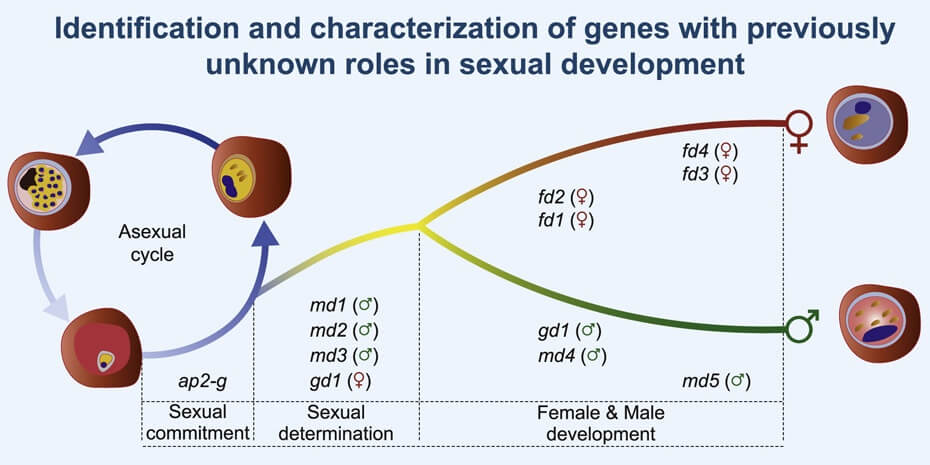New highlight on study revealing sex determination genes in a malaria parasite that are essential in disease transmission
February 24, 2023
We have published a new data highlight, entitled ‘Discovery of sex determination genes in a malaria parasite that are essential for mosquito transmission’, which is based on Russell et al. (2023)
Malaria remains a major threat to public health. Understanding how malaria is transmitted via mosquitoes is crucial in tackling the spread of the disease, because it could enable scientists to devise new methods of preventing the spread. In a recent publication resulting from an international collaboration, reserachers studied how sex is determined in Plasmodium berghei, and how this affects transmission of malaria. Plasmodium berghei is a causative agent of malaria in rodents, and can be used as a model to study malaria in humans. The researchers combined functional screens of barcoded mutants and single cell transcriptomics to understand the biology of this highly divergent and poorly tractable eukaryote. Raw data, as well as mass spectrometry data and code were shared openly.
Do you have some data-driven life science research that you’d like to highlight, or even present as a service, on the SciLifeLab Data Platform? If so, please fill out the forms on the appropriate pages or get in touch.